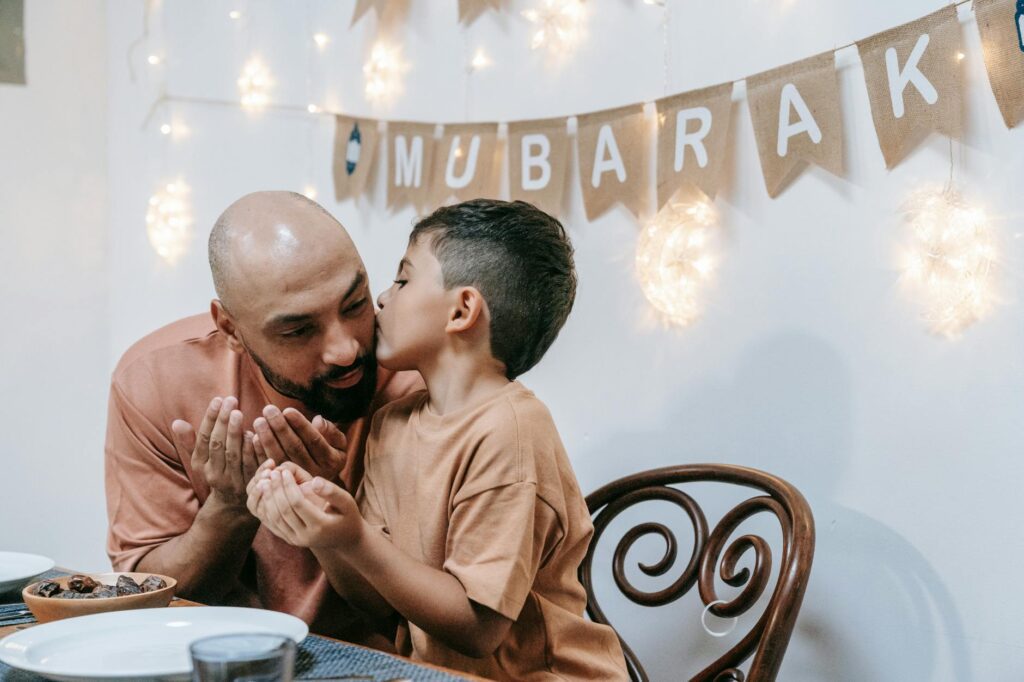What is the Muslim Equivalent of Christmas? Exploring Eid al-Fitr, Eid al-Adha, and the Heart of Islamic Festivities
Curious about the Muslim equivalent of Christmas? You’re not alone. Many people look for similarities between the biggest celebrations in different religions, hoping to understand how faith, family and joy bring people together. This article takes a closer look at the main Islamic holidays, why Eid al-Fitr is most often compared to Christmas, and what makes these celebrations special in their own right.
What is the Muslim Equivalent of Christmas?
When people ask, “what is the Muslim equivalent of Christmas,” they are usually searching for a holiday that brings families together, has deep religious meaning and fills communities with festive spirit. In Islam, there is no direct counterpart to Christmas. While Christmas marks the birth of Jesus in Christianity, Muslim holidays focus on different events and beliefs.
The two biggest Islamic celebrations are Eid al-Fitr and Eid al-Adha. Of these, Eid al-Fitr often draws the most comparisons. It’s a time for joy, community, prayer and giving, and much like Christmas, you’ll see reunions, hugs and laughter. Still, the roots and religious messages behind each are not the same.

Significance and Meaning of Eid al-Fitr and Eid al-Adha
Eid al-Fitr and Eid al-Adha are full of meaning and tradition. Both holidays call for reflection, gratitude, and service to others.
- Eid al-Fitr celebrates the end of Ramadan, a month of fasting, prayer and self-restraint. It’s a reward for endurance, discipline and growth, rooted in gratitude and faith.
- Eid al-Adha honors the willingness of Prophet Ibrahim to sacrifice for God, as told in the story of Abraham’s devotion. It’s about obedience, faith and helping the less fortunate.
Eid al-Fitr: Celebrating the End of Ramadan
Eid al-Fitr, sometimes called the “Festival of Breaking the Fast,” marks a joyful close to Ramadan. Families get up early for prayers, exchange well-wishes, wear new clothes—and make sure no one in the community is left hungry or alone.
Charity is central to this day. Muslims give Zakat al-Fitr, a required donation to help those in need join the celebration. Special foods, sweets, and gatherings with friends and family fill homes with laughter and warmth. For more detail on Eid al-Fitr and its customs, see the Eid al-Fitr Wikipedia page
Eid al-Adha: The Festival of Sacrifice
Eid al-Adha is known as the “Festival of Sacrifice.” It remembers Prophet Ibrahim’s willingness to obey God, even when asked to sacrifice his son. Instead, God provided a ram as a substitute, showing mercy and reward for unwavering faith.
Today, Muslims who can afford it sacrifice an animal (like a sheep or cow), keeping a third of the meat for their family, sharing another third with friends and neighbors, and giving the final third to the poor. This day is also marked by prayers, visiting loved ones and focusing on selflessness and charity. You can learn more about its origins and rituals on the Eid al-Adha Wikipedia page.
How Muslim Holidays Differ from Christmas
At first glance, Eid and Christmas seem similar: both inspire joy, feasting and generosity. But at their core, these holidays come from different religious stories and focus.
- Christmas remembers the birth of Jesus, who is also respected in Islam, but Muslims do not believe Jesus is divine, so they don’t celebrate his birth.
- Eid al-Fitr and Eid al-Adha come from Islamic teachings about fasting, obedience and sacrifice. There are no trees, stockings or Santa in these festivals.
Gift-giving happens, but with a different focus. The spirit revolves more around helping those in need than swapping lavish presents or decorating homes in a secular way. The point is togetherness, shared prayers and making sure your neighbor is cared for.
Celebration, Community, and Charity in Muslim Festivals
The real heartbeat of Eid is community and charity. Islamic holidays stress kindness, forgiveness and standing by each other, whether through a shared meal or supporting those who are struggling.
Generosity is not just encouraged, it’s required. Eid isn’t just a party; it’s an opportunity to reset relationships, make amends and spread hope. This focus on serving others turns the holiday into something more than a celebration—it becomes an act of faith lived out loud.
Conclusion
If you’re asking what is the Muslim equivalent of Christmas, Eid al-Fitr is probably the closest answer, thanks to its joyful mood and strong family focus. Still, the meaning, practices and religious origins are different. Both Eid festivals offer connection, hope and love—but they draw from Islamic teachings that shape how Muslims see faith and community. No exact equivalent exists, yet these holidays prove that joy, gratitude and compassion can speak to every heart, no matter the tradition.
